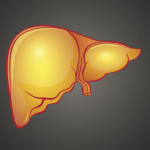HIV-positive men who were given an experimental version of the hormone leptin had a significant reduction in their belly fat after three months of treatment, according to a study published in the April issue of The Journal of Clinical Endocrinology & Metabolism.
Leptin helps the body regulate appetite and how it uses fat stores for energy. Both human and animal studies have found that abnormally low leptin levels can lead to unhealthy changes in cholesterol, triglycerides and insulin.
To determine whether increasing leptin levels using a manufactured version of the hormone might help normalize cholesterol, triglyceride and insulin levels, Kathleen Mulligan, PhD, from the University of California in San Francisco, and her colleagues enrolled eight HIV-positive men with low leptin levels. All of the men had triglyceride and low-density lipoprotein (LDL)—the bad cholesterol—levels that were too high. The men also had insulin resistance, which can ultimately lead to diabetes, belly fat accumulation and lipoatrophy. The men received twice daily injections of leptin, with doses based on their body weight.
Mulligan’s team found that leptin replacement significantly reduced LDL and triglyceride levels. It also increased the levels of high-density lipoprotein (HDL)—the good cholesterol—and lowered the men’s degree of insulin resistance.
Of particular note, leptin also decreased the men’s belly fat accumulation by 32 percent, without further decreasing fat in the limbs. This reduction exceeds decreases reported with other experimental therapies. For example, Serono’s growth hormone (Serostim) decreased belly fat accumulation by 21 to 24 percent, and its growth hormone promoter tesamorelin, expected to be approved later this year, decreases belly fat by 15 percent. Plus, Mulligan’s team reports, leptin improved the body’s ability to break down blood glucose, whereas tesamorelin does not.
The authors caution that this is a very small pilot study and that the treatment was not compared with a placebo, which will be critical to proving its efficacy and safety. Nevertheless, the results are sufficiently impressive, and further studies are being urged.
Advertisement
Advertisement
Advertisement






5 Comments
5 Comments